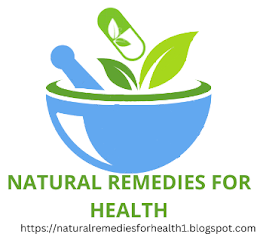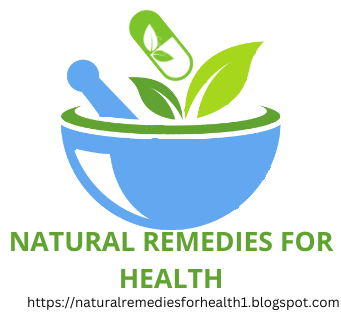Natural Remedies for Allergies
Allergies can be a major inconvenience, causing discomfort and interfering with daily life. While there are numerous over-the-counter and prescription medications available to manage allergies, many people are seeking natural remedies to alleviate their symptoms. In this article, we will explore a variety of natural remedies that can help you find relief from allergies without relying solely on medication. Let's dive in and discover some effective ways to combat allergies naturally.
Introduction
Allergies occur when the immune system overreacts to harmless substances, such as pollen, dust mites, pet dander, or certain foods. The symptoms can range from mild to severe and may include sneezing, itching, congestion, watery eyes, and skin rashes. Natural remedies for allergies aim to minimize these symptoms and improve overall well-being.
Understanding Allergies
To effectively manage allergies, it is essential to understand the triggers that cause the immune system to react. Allergy testing can help identify specific allergens that affect you. By knowing your triggers, you can take proactive steps to avoid or minimize exposure to them.
Reducing Allergens in Your Environment
One of the most effective ways to alleviate allergies is to reduce exposure to allergens in your environment. Keep your home clean and free of dust by regularly vacuuming, dusting, and washing bedding in hot water. Use air purifiers with HEPA filters to remove allergens from the air. Additionally, consider using allergen-proof covers for mattresses and pillows.
Quercetin-Rich Foods
Quercetin is a natural compound found in certain foods that have been shown to have antihistamine and anti-inflammatory properties. Incorporating quercetin-rich foods into your diet can help reduce allergy symptoms. Some examples of quercetin-rich foods include apples, berries, citrus fruits, onions, and leafy greens.
Local Honey
Consuming local honey has been a popular remedy for seasonal allergies. The theory is that by consuming small amounts of local honey, you may become less sensitive to the pollen in your area over time. However, more research is needed to confirm its effectiveness.
Nasal Irrigation
Nasal irrigation, also known as nasal rinsing, involves flushing out the nasal passages with a saline solution. This practice can help remove allergens and irritants, providing relief from nasal congestion and sinus symptoms. Use a neti pot or a nasal saline spray to perform nasal irrigation safely.
Probiotics for Allergy Relief
Probiotics are beneficial bacteria that promote a healthy gut and immune system. Some studies suggest that probiotics may help reduce the severity of allergy symptoms, especially in children. You can find probiotics in fermented foods like yogurt, kefir, sauerkraut, and kimchi.
Essential Oils for Allergies
Certain essential oils, such as peppermint, eucalyptus, and lavender, may provide relief from allergy symptoms. These oils can be used in diffusers or added to carrier oils for topical application. However, it's important to use essential oils cautiously and consider any potential allergies or sensitivities.
Vitamin C for Allergic Reactions
Vitamin C is known for its immune-boosting properties and may help reduce the severity of allergic reactions. Including vitamin C-rich foods in your diet, such as oranges, strawberries, bell peppers, and broccoli, can be beneficial for managing allergies.
Butterbur Extract
Butterbur is a herb that has been traditionally used for allergies and migraines. Studies have shown that butterbur extract may help relieve symptoms of hay fever, such as sneezing, itching, and congestion. However, it's essential to choose a standardized, certified product and consult with a healthcare professional before using it.
Apple Cider Vinegar
Apple cider vinegar has gained popularity for its potential health benefits, including alleviating allergy symptoms. It is believed to support the immune system and reduce mucus production. Mix one tablespoon of raw, unfiltered apple cider vinegar with water and honey, and drink it daily to experience its potential benefits.
Acupuncture and Acupressure
Traditional Chinese medicine practices like acupuncture and acupressure have been used for centuries to address various health conditions, including allergies. These therapies aim to stimulate specific points on the body to restore balance and relieve symptoms. Consult with a licensed practitioner to explore these alternative treatments.
Breathing Exercises and Yoga
Engaging in breathing exercises and practicing yoga can help manage stress and improve respiratory function. Deep breathing techniques, such as diaphragmatic breathing, can promote relaxation and reduce the impact of allergic reactions. Incorporate yoga poses that focus on opening the chest and improving lung capacity.
Keeping a Healthy Lifestyle
Maintaining a healthy lifestyle can contribute to overall well-being and minimize the impact of allergies. Get regular exercise, eat a balanced diet, stay hydrated, and get enough sleep. These habits can strengthen your immune system and help your body better cope with allergens.
Conclusion
Natural remedies for allergies offer alternative approaches to managing symptoms and promoting well-being. From reducing allergens in your environment to incorporating specific foods and practices, there are several options to explore. Remember, it's essential to consult with a healthcare professional before trying any new remedies, especially if you have underlying health conditions or take medications.
FAQs
- Are natural remedies as effective as medication for allergies?
- Can natural remedies completely cure allergies?
- Are there any side effects associated with natural remedies for allergies?
- How long does it take for natural remedies to show results?
Natural remedies can provide relief for some individuals, but the effectiveness varies. It's important to find what works best for you and consult with a healthcare professional.
Natural remedies may help alleviate symptoms, but they may not cure allergies entirely. They can be used as complementary approaches to manage symptoms alongside medical treatments.
While natural remedies are generally considered safe, some individuals may experience side effects or allergic reactions. It's crucial to follow recommended dosages and consult with a healthcare professional.
The time it takes for natural remedies to show results can vary depending on the individual and the specific remedy. Some remedies may






















0 Comments